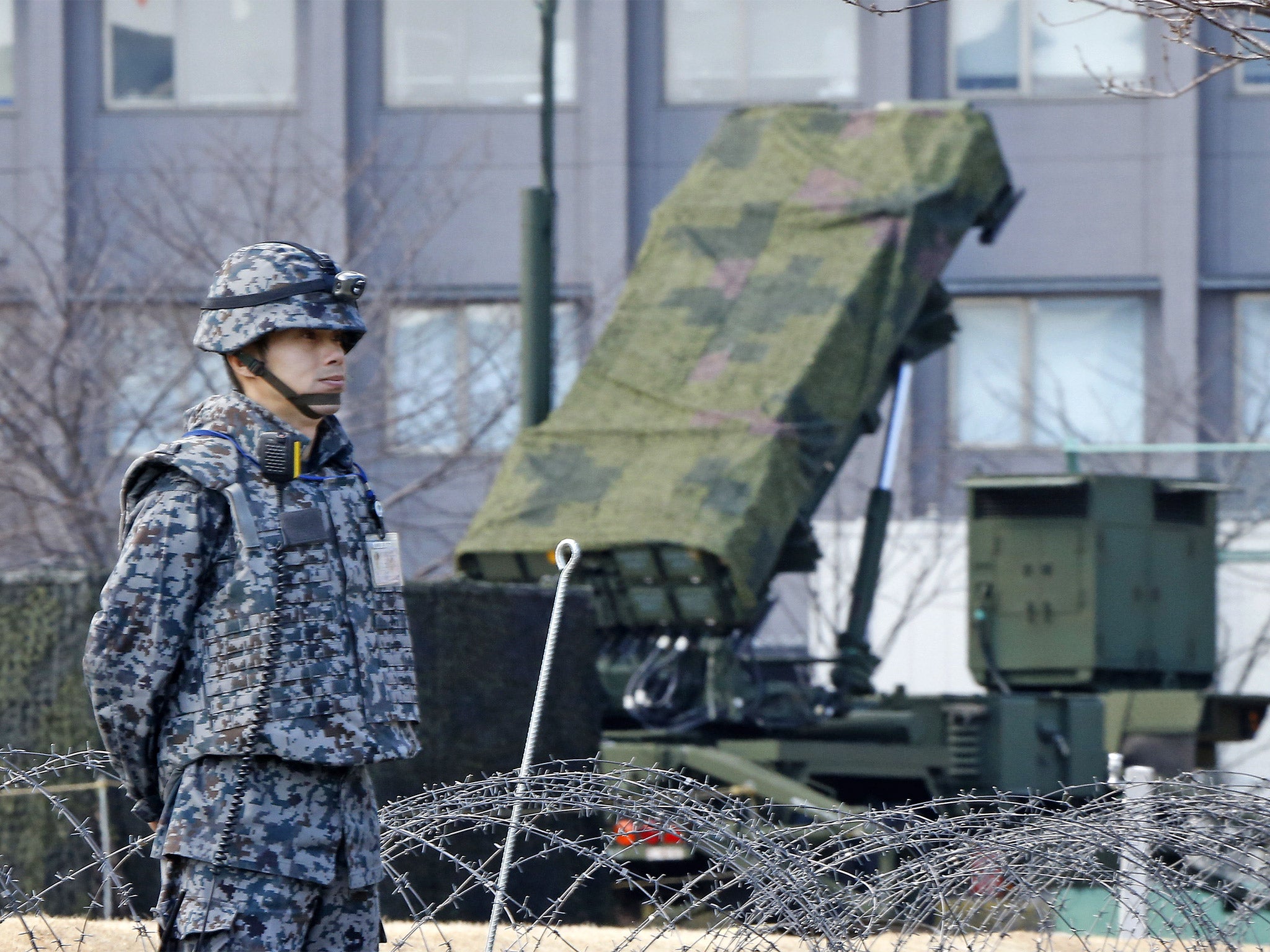North Korea weapons test: Japan puts military on alert over 'planned missile launch'
The rogue state notified UN agencies this week of its plan to launch what it called an 'earth observation satellite' some time between 8 and 25 February

Your support helps us to tell the story
From reproductive rights to climate change to Big Tech, The Independent is on the ground when the story is developing. Whether it's investigating the financials of Elon Musk's pro-Trump PAC or producing our latest documentary, 'The A Word', which shines a light on the American women fighting for reproductive rights, we know how important it is to parse out the facts from the messaging.
At such a critical moment in US history, we need reporters on the ground. Your donation allows us to keep sending journalists to speak to both sides of the story.
The Independent is trusted by Americans across the entire political spectrum. And unlike many other quality news outlets, we choose not to lock Americans out of our reporting and analysis with paywalls. We believe quality journalism should be available to everyone, paid for by those who can afford it.
Your support makes all the difference.Japan has put its military on alert to shoot down any North Korean rocket that threatens it, while South Korea warned the North it would pay a “severe price” if it went ahead with a proposed satellite launch.
North Korea has said it has a sovereign right to pursue a space programme by launching rockets, although the US and other governments suspect that such launches are in fact tests of its missiles. The North notified UN agencies this week of its plan to launch what it called an “earth observation satellite” some time between 8 and 25 February.
“In view of the announcement, I have put the Self-Defense Force’s Aegis destroyers and our PAC-3 units on alert and issued an order to shoot down any ballistic missile threat,” Japan’s defence minister, Gen Nakatani, said.
Japanese Prime Minister, Shinzo Abe, said he would work with the US and others to demand that North Korea refrain from what he described as a planned missile launch.
Tension rose in east Asia last month after a nuclear test by North Korea – the country’s fourth – in which the North claimed it tested a hydrogen bomb. Those claims were treated with scepticism by nations such as the US.
A rocket launch coming so soon after the test would raise concern that North Korea plans to fit nuclear warheads on its missiles, giving it the capability to launch a strike against South Korea, Japan and possibly targets as far away as the US West Coast. North Korea last launched a long-range rocket in December 2012, sending an object it described as a communications satellite into orbit.
South Korea said the North should immediately call off the launch, which was a violation of UN Security Council resolutions, the South’s presidency said. “We warn that the North will pay a severe price if it goes ahead with the long-range missile launch plan,” a presidential statement said.
Russia said a launch “would be an unmistakable slap in the face to those who argue that you just need to show patience and dialogue with the North Koreans but not sanctions”, in an apparent reference to China.
China, under pressure from the US to use its influence to rein in the isolated North Korea, said the nation’s right to space exploration was restricted under UN resolutions.
“We hope North Korea exercises restraint on the issue of launching satellites, acts cautiously and does not take any escalatory steps that may further raise tensions on the Korean peninsula,” Chinese Foreign Ministry spokesman Lu Kang said.
Reuters
Join our commenting forum
Join thought-provoking conversations, follow other Independent readers and see their replies
Comments